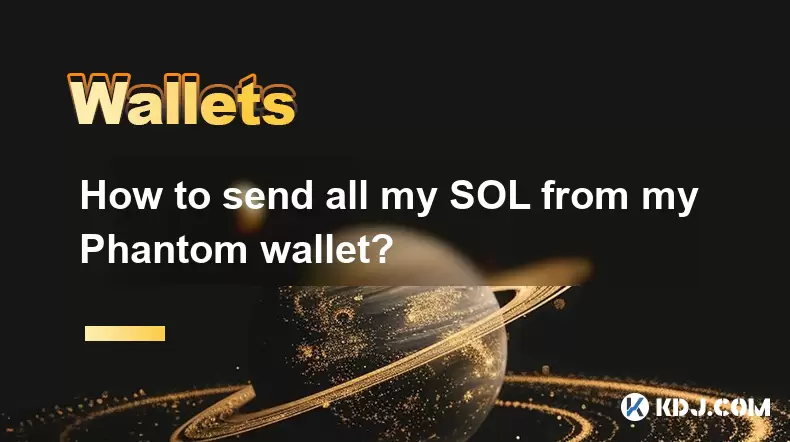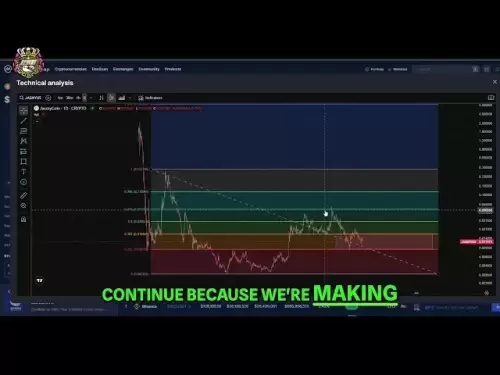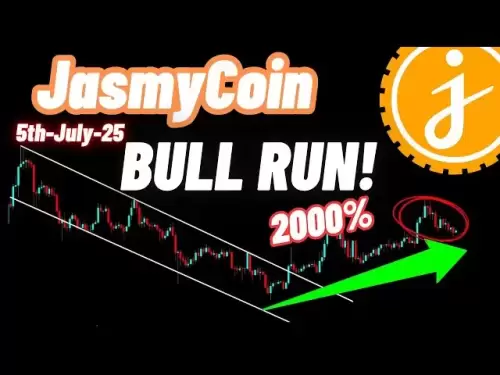-
 Bitcoin
Bitcoin $108,250.0992
0.11% -
 Ethereum
Ethereum $2,515.9404
0.03% -
 Tether USDt
Tether USDt $1.0003
0.00% -
 XRP
XRP $2.2166
-0.19% -
 BNB
BNB $656.5904
0.29% -
 Solana
Solana $147.4122
-0.58% -
 USDC
USDC $1.0000
-0.01% -
 TRON
TRON $0.2830
0.06% -
 Dogecoin
Dogecoin $0.1641
0.27% -
 Cardano
Cardano $0.5739
-0.19% -
 Hyperliquid
Hyperliquid $39.1463
-0.11% -
 Sui
Sui $2.8882
-0.02% -
 Bitcoin Cash
Bitcoin Cash $487.6428
0.31% -
 Chainlink
Chainlink $13.2097
0.07% -
 UNUS SED LEO
UNUS SED LEO $9.0308
0.10% -
 Avalanche
Avalanche $17.8608
0.13% -
 Stellar
Stellar $0.2379
-0.06% -
 Toncoin
Toncoin $2.7400
-0.39% -
 Shiba Inu
Shiba Inu $0.0...01144
-0.36% -
 Litecoin
Litecoin $87.5467
0.66% -
 Hedera
Hedera $0.1538
0.22% -
 Monero
Monero $315.5479
0.36% -
 Dai
Dai $1.0000
0.00% -
 Polkadot
Polkadot $3.3523
-0.71% -
 Ethena USDe
Ethena USDe $1.0003
0.01% -
 Bitget Token
Bitget Token $4.3960
-1.03% -
 Uniswap
Uniswap $7.2663
4.19% -
 Aave
Aave $272.8619
2.04% -
 Pepe
Pepe $0.0...09676
-0.18% -
 Pi
Pi $0.4586
-2.87%
How to prevent SIM hijacking attacks on Dogecoin wallets?
Protect your Dogecoin by using a hardware wallet, enabling authenticator app 2FA, avoiding phishing scams, and immediately reporting suspicious activity to your carrier and exchange.
Mar 20, 2025 at 02:00 pm

Key Points:
- Understanding the vulnerability of SIM swapping and its impact on Dogecoin wallets.
- Implementing strong authentication measures beyond just a SIM card.
- Utilizing hardware wallets for enhanced security.
- Recognizing phishing attempts and malicious links.
- Reporting suspicious activity immediately to relevant authorities and exchanges.
- Regularly reviewing and updating security settings on your phone and accounts.
How to Prevent SIM Hijacking Attacks on Dogecoin Wallet?
SIM swapping, or SIM hijacking, is a serious threat to cryptocurrency users, including those holding Dogecoin. Attackers trick mobile carriers into transferring your phone number to a SIM card they control. This allows them to access your two-factor authentication (2FA) codes sent via SMS, potentially granting them access to your Dogecoin wallet. Preventing this requires a multi-layered approach to security.
Strengthening Your Account Security:
- Enable Two-Factor Authentication (2FA) Beyond SMS: While SMS-based 2FA is convenient, it's vulnerable to SIM swapping. Consider using authenticator apps like Google Authenticator or Authy, which generate codes independently of your SIM card. These apps offer a much more secure alternative.
- Use a Hardware Wallet: Hardware wallets, like Ledger or Trezor, store your private keys offline, making them immune to SIM swapping attacks. This is the most secure way to protect your Dogecoin holdings. The keys never leave the physical device, offering unparalleled security.
- Regularly Update Your Software: Keep your phone's operating system, apps, and your wallet software updated. These updates often include security patches that protect against known vulnerabilities. Outdated software increases your risk significantly.
- Strong Passwords and Passphrases: Avoid easily guessable passwords. Use a strong, unique password for each account and consider using a password manager to help you manage them securely.
Identifying and Avoiding Phishing Scams:
Phishing is a common tactic used to obtain your login credentials. Attackers send fake emails or text messages that mimic legitimate services. These messages often contain links to fraudulent websites designed to steal your information.
- Verify Links and Email Addresses: Always double-check links before clicking them. Hover over the link to see the actual URL, and be wary of misspellings or unusual domain names.
- Be Wary of Unsolicited Communication: Don't click on links or open attachments from unknown senders. Legitimate companies rarely ask for your password or private keys via email or SMS.
- Never Share Your Private Keys: Your private keys are the sole access point to your Dogecoin. Never share them with anyone, regardless of how trustworthy they seem. Any request for this information should be treated with extreme suspicion.
Reporting and Prevention:
- Report Suspicious Activity Immediately: If you suspect a SIM swap or any unauthorized access to your account, contact your mobile carrier and cryptocurrency exchange immediately. Timely reporting can limit the damage.
- Monitor Your Accounts: Regularly check your Dogecoin wallet and account activity for any unusual transactions. Early detection is crucial in mitigating losses.
- Choose Secure Wi-Fi Networks: Avoid using public Wi-Fi networks to access your cryptocurrency accounts. Public Wi-Fi is often unsecured, making your data vulnerable to interception.
Beyond the Basics:
- Consider Using a VPN: A Virtual Private Network (VPN) can encrypt your internet traffic, adding an extra layer of security, particularly when using public Wi-Fi.
- Regular Security Audits: Periodically review your security practices and update your strategies as new threats emerge. Staying informed about cybersecurity is paramount.
- Enable Email Notifications: Set up email alerts for significant account activity, like logins from new devices or large transactions. This can help you detect suspicious activity promptly.
- Understand Your Exchange's Security Features: Familiarize yourself with the security measures provided by your chosen cryptocurrency exchange. Reputable exchanges offer various security tools and features.
Frequently Asked Questions (FAQs):
Q: What should I do if my SIM card is hijacked?
A: Immediately contact your mobile carrier to report the SIM swap and request a new SIM card. Then, contact your cryptocurrency exchange to secure your account and report the incident. Change your passwords and implement stronger authentication methods.
Q: Are hardware wallets completely immune to SIM swapping attacks?
A: Yes, hardware wallets are largely immune to SIM swapping because they store your private keys offline, independent of your phone or internet connection.
Q: Can I still use SMS 2FA if I take other security precautions?
A: While it adds a layer of security, SMS 2FA remains vulnerable. Combining it with other security measures like authenticator apps reduces the risk but doesn't eliminate it. Using authenticator apps is strongly recommended.
Q: How can I spot a phishing email or text message?
A: Look for poor grammar, misspellings, unusual email addresses, and requests for sensitive information like passwords or private keys. Always verify links before clicking and be wary of unsolicited communications.
Q: What are the best practices for securing my Dogecoin wallet?
A: Use a hardware wallet, enable strong 2FA (preferably authenticator app), use strong unique passwords, be cautious of phishing scams, regularly update your software, and monitor your account activity closely.
Disclaimer:info@kdj.com
The information provided is not trading advice. kdj.com does not assume any responsibility for any investments made based on the information provided in this article. Cryptocurrencies are highly volatile and it is highly recommended that you invest with caution after thorough research!
If you believe that the content used on this website infringes your copyright, please contact us immediately (info@kdj.com) and we will delete it promptly.
- Ruvi AI: The Avalanche of Returns Crashing into the Crypto Scene
- 2025-07-06 08:30:13
- XRP's Wild Ride: Is a Parabolic Bull Run on the Horizon?
- 2025-07-06 08:30:13
- Bitcoin, Suspicion, and Billions: Decoding the Crypto Whale Moves
- 2025-07-06 08:50:13
- Bitcoin's Price Discovery Quest: Rally Structure Under the Microscope
- 2025-07-06 08:50:13
- Dogecoin, Ripple, and the Banking License Quest: What's the Hype?
- 2025-07-06 09:10:12
- Bitcoin, Billion Dollars, and Suspicion: A Crypto Conundrum
- 2025-07-06 09:10:12
Related knowledge

How to cancel a pending transaction in Phantom wallet?
Jul 03,2025 at 07:21pm
Understanding Pending Transactions in Phantom WalletA pending transaction in the Phantom wallet occurs when a user initiates a transfer or interaction with the Solana blockchain, but it hasn't yet been confirmed by the network. This can happen due to various reasons such as low transaction fees, network congestion, or incorrect gas settings. It's import...

How to see the estimated value of my tokens in Phantom wallet?
Jul 04,2025 at 12:21am
What is Phantom Wallet?Phantom wallet is one of the most popular cryptocurrency wallets designed for the Solana blockchain. It allows users to store, send, receive, and manage various tokens built on Solana, including SPL tokens and NFTs. The wallet offers a user-friendly interface, making it accessible for both beginners and advanced users in the crypt...

How to lock my Phantom wallet extension?
Jul 03,2025 at 11:14am
What Is the Phantom Wallet and Why Lock It?The Phantom wallet is a popular non-custodial cryptocurrency wallet designed for interacting with the Solana blockchain. Supporting both browser extensions and mobile apps, Phantom allows users to store, send, receive, and stake SOL tokens, as well as interact with decentralized applications (dApps). Securing y...

Does Phantom wallet offer two-factor authentication (2FA)?
Jul 03,2025 at 09:00am
Understanding Phantom Wallet and Its Security FeaturesPhantom wallet is a widely used non-custodial cryptocurrency wallet that supports the Solana blockchain. It allows users to store, send, receive, and interact with decentralized applications (dApps) seamlessly. As security is a top priority for any crypto wallet user, security features like two-facto...

How to send all my SOL from my Phantom wallet?
Jul 06,2025 at 10:00am
Preparing to Send SOL from Your Phantom WalletBefore initiating any transaction, it is crucial to ensure that your Phantom wallet is fully set up and connected to the correct network. Phantom supports multiple networks, but for sending SOL, you must be on the Solana blockchain. Confirm this by checking the network indicator in the top-right corner of th...

What is "rent" on Solana and how does it affect my Phantom wallet?
Jul 02,2025 at 08:35pm
Understanding 'Rent' on SolanaIn the context of Solana, the term 'rent' refers to a storage fee that users pay for maintaining data on the blockchain. Unlike Ethereum, where storage costs are paid once via gas fees during contract deployment, Solana implements a recurring cost model to ensure efficient usage of network resources. This means that any acc...

How to cancel a pending transaction in Phantom wallet?
Jul 03,2025 at 07:21pm
Understanding Pending Transactions in Phantom WalletA pending transaction in the Phantom wallet occurs when a user initiates a transfer or interaction with the Solana blockchain, but it hasn't yet been confirmed by the network. This can happen due to various reasons such as low transaction fees, network congestion, or incorrect gas settings. It's import...

How to see the estimated value of my tokens in Phantom wallet?
Jul 04,2025 at 12:21am
What is Phantom Wallet?Phantom wallet is one of the most popular cryptocurrency wallets designed for the Solana blockchain. It allows users to store, send, receive, and manage various tokens built on Solana, including SPL tokens and NFTs. The wallet offers a user-friendly interface, making it accessible for both beginners and advanced users in the crypt...

How to lock my Phantom wallet extension?
Jul 03,2025 at 11:14am
What Is the Phantom Wallet and Why Lock It?The Phantom wallet is a popular non-custodial cryptocurrency wallet designed for interacting with the Solana blockchain. Supporting both browser extensions and mobile apps, Phantom allows users to store, send, receive, and stake SOL tokens, as well as interact with decentralized applications (dApps). Securing y...

Does Phantom wallet offer two-factor authentication (2FA)?
Jul 03,2025 at 09:00am
Understanding Phantom Wallet and Its Security FeaturesPhantom wallet is a widely used non-custodial cryptocurrency wallet that supports the Solana blockchain. It allows users to store, send, receive, and interact with decentralized applications (dApps) seamlessly. As security is a top priority for any crypto wallet user, security features like two-facto...

How to send all my SOL from my Phantom wallet?
Jul 06,2025 at 10:00am
Preparing to Send SOL from Your Phantom WalletBefore initiating any transaction, it is crucial to ensure that your Phantom wallet is fully set up and connected to the correct network. Phantom supports multiple networks, but for sending SOL, you must be on the Solana blockchain. Confirm this by checking the network indicator in the top-right corner of th...

What is "rent" on Solana and how does it affect my Phantom wallet?
Jul 02,2025 at 08:35pm
Understanding 'Rent' on SolanaIn the context of Solana, the term 'rent' refers to a storage fee that users pay for maintaining data on the blockchain. Unlike Ethereum, where storage costs are paid once via gas fees during contract deployment, Solana implements a recurring cost model to ensure efficient usage of network resources. This means that any acc...
See all articles

























































































